
|
NOTE:
BE SURE TO CLICK ON THE INDIVIDUAL PICTURES TO
SEE A LARGER, MORE DETAILED VIEW OF EACH STATION |
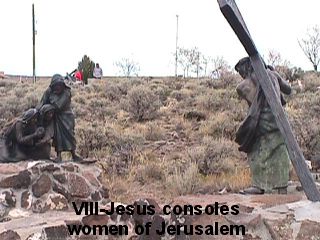 |
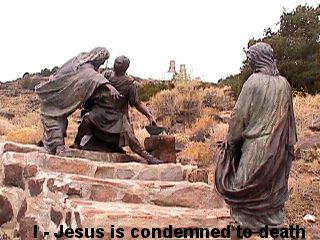
|
While staying in Alamosa, Colorado we heard
about a town that had a shrine of the Stations of the Cross. After traveling for
about 40 miles we arrived in a very simple town. It wasn't difficult to locate
the Stations of the Cross Shrine. It was the focal point of the town,
which is Colorado's oldest town. The Stations of the Cross Shrine is a series of
graphic meditations of the last hours of Christ's life. |
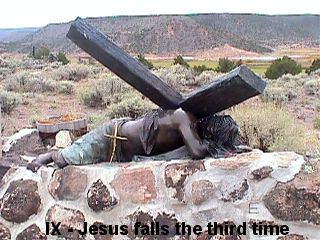 |
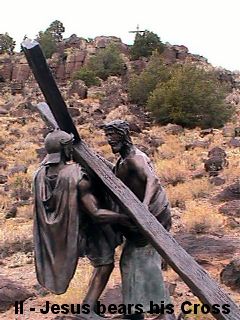
|
It depicts His
judgment,
suffering, and death. They also included, at the "15th Station" the
Resurrection. The shrine is formally known as "La Mesa de la Piedad y de la Misericordia" (Hill of Piety and Mercy). Here, they have recreated their
own Calvary. The trail leading to the Shrine is just under a mile long, and it culminates at a grotto of Our Lady of Guadalupe, the Mother
of God. This grotto holds pink sandstone statues of the Virgin Mary and Juan
Diego. The grotto reminds people of |
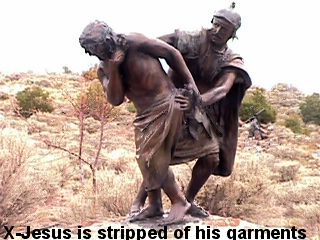 |

|
the special place in the role of salvation
and the love that Hispanics have for Mary, Our Lady of Guadalupe. In
May 1991 Rev. Pat Valdez of the Sangre de Cristo Church journeyed to Rome with
twenty-nine parishioners for an audience with Pope John Paul II. They were accompanied
by sculptor Huberto Maestas, a San Luis native and creator of the town's Stations of
the Cross Shrine.
|
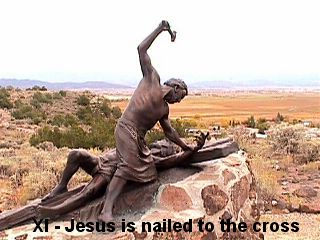 |
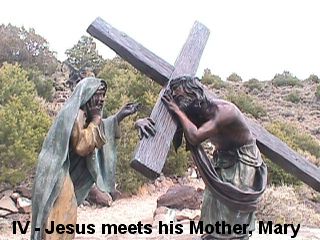
|
Dedicated in 1990, the shrine symbolizes the central role of religion in southern Colorado's Hispano
communities. Local residents come here throughout the year for prayer,
reflection, and celebration. The shrine also makes an important
contribution to the
San Luis
economy, drawing thousands of visitors annually.
|
 |
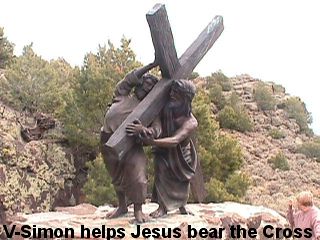 |
Perhaps most important, it has rekindled a sense of unity and pride in this, Colorado's first significant settlement.
We learned that the statues were sculpted by
Huberto Maestas. He is described as a restless spirit with a passion for art.
Maestas exuberates a creative
energy that is evident not only in art, but in
life itself.
There is nothing passive about a piece by Maestas. His figures embrace drama, and
|
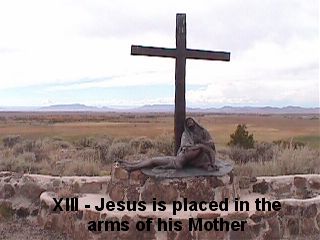 |
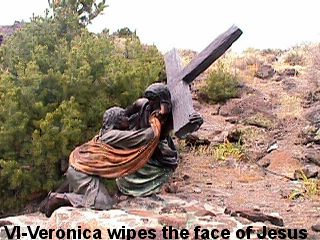 |
capture the spirit of form in
motion. Visualizing each sculpture before it is begun, he captures the essence of
each piece he creates. Addressing his art to the realm of human experience,
Maestas is drawn to the human figure.
Maestas couples his artistic vision with technical skill, seeing a piece through the "lost wax process" into a finished bronze. |
 |
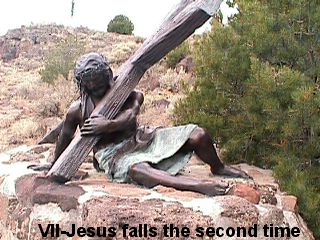 |
Be sure you allow plenty of time as
there a number of things to see besides the Stations of the Cross. The
interior of the Church on the top of the hill is beautiful as well as
the Grotto to Our Lady of Guadalupe. There
is also a visitors center that has an excellent view of the town and
surrounding mountains. Our trip to this shrine was a really moving one and something I would
recommend to anyone visiting in this area.
|
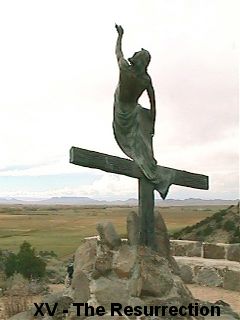 |